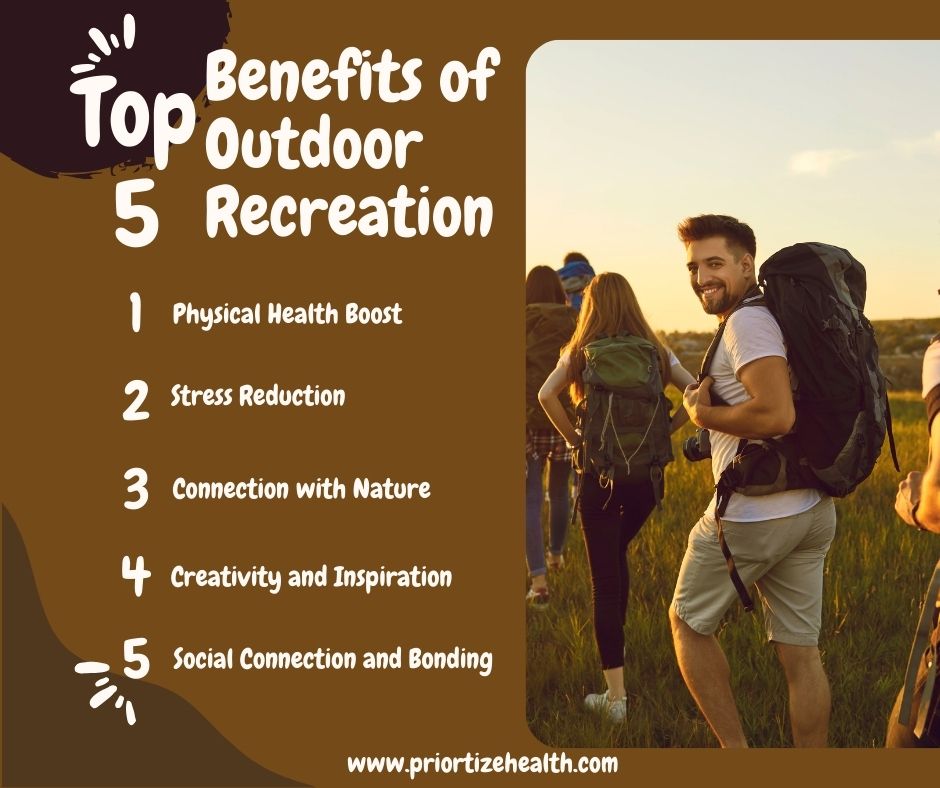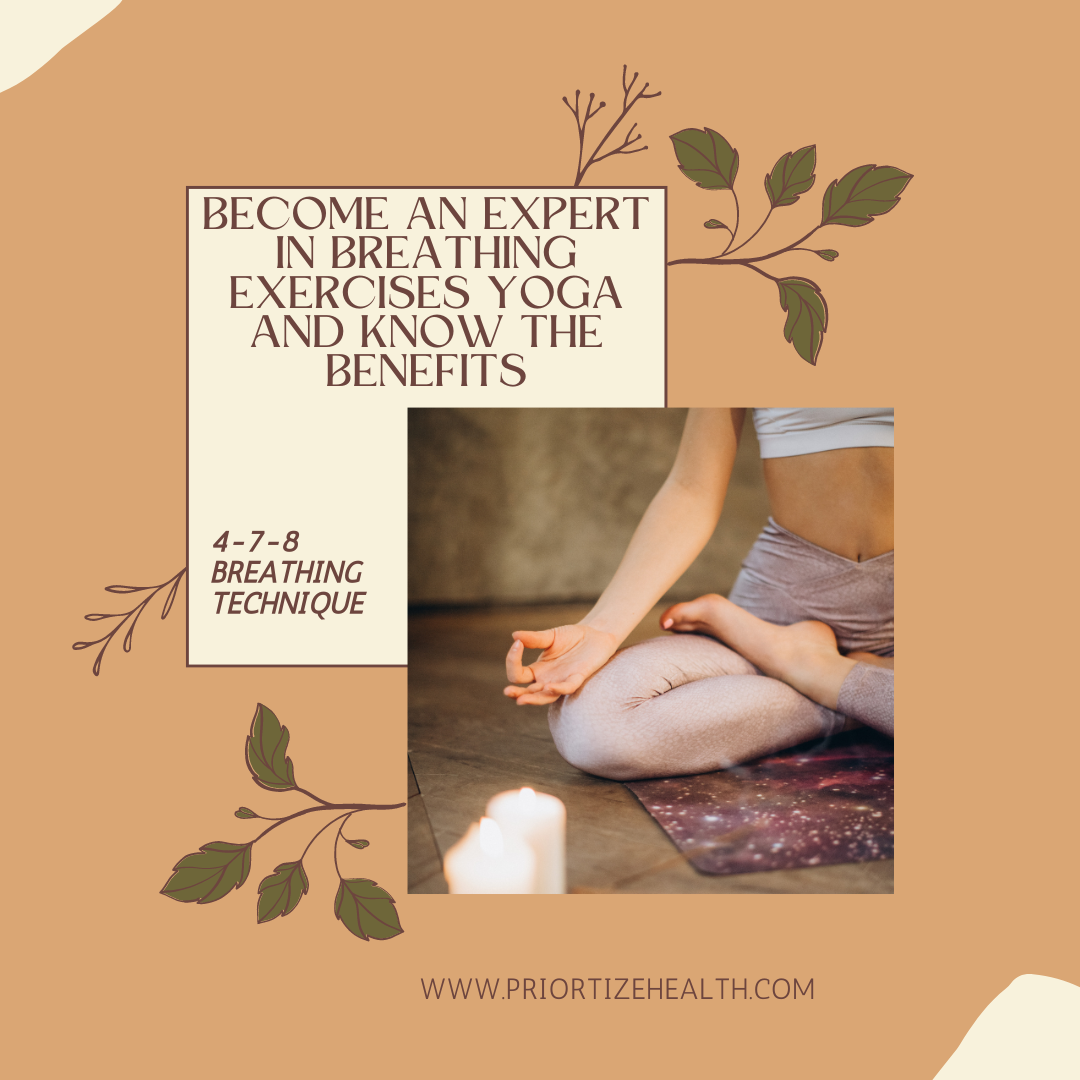
Top 5 Benefits of Outdoor Recreation
In today’s busy life, finding time to reconnect with nature is essential for our well-being. Outdoor recreation offers a myriad of benefits. It extends beyond physical health, encompassing mental and emotional wellness as well. From reducing stress to fostering creativity, spending time outdoors can enrich our lives. Let’s understand the top five benefits of outdoor recreation. We will also explore why embracing nature is so vital.
1) Physical Health Boost:
Outdoor recreation provides an excellent opportunity to engage in physical activity. It can be hiking, biking, swimming, or taking a stroll in the park.
A) Engagement in Physical Activity:
- Outdoor recreation provides many opportunities for physical activity. They are hiking, biking, swimming, jogging, and playing sports.
- These activities engage various muscle groups, promote flexibility, and improve cardiovascular health.
- Regular physical activity helps maintain a healthy weight. It also reduces the risk of chronic diseases like heart disease and diabetes, and increase fitness levels.
B) Sunlight and Vitamin D Production:
- Spending time outdoors exposes the body to sunlight. This is essential for vitamin D production.
- Vitamin D is crucial for calcium absorption, supporting bone health and strength.
- Adequate vitamin D levels also play a role in boosting the immune system. It helps in reducing inflammation and improving mood.
C) Fresh Air and Oxygen Intake:
- Outdoor environments offer cleaner air. It gives higher oxygen levels compared to indoor spaces.
- Breathing in fresh air helps improve lung function. It increases oxygen intake and promotes better circulation throughout the body.
- Oxygen-rich air energizes the body, boosts metabolism, and enhances our well-being.
D) Enhanced Endurance and Stamina:
- Outdoor recreational activities often need physical exertion. This leads to improvements in endurance and stamina over time.
- Engage in activities like hiking or cycling uphill. It challenges the body and builds muscular endurance.
- Increased stamina allows individuals to engage in longer and more intense physical activities. This leads to greater fitness gains.
E) Stress Reduction and Relaxation:
- Physical activity outdoors can act as a natural stress reliever. It helps to reduce tension and promote relaxation.
- Exercise triggers the release of endorphins and neurotransmitters. They promote feelings of happiness and well-being.
- Outdoor environments provide a peaceful and serene backdrop for exercise. They further enhance the stress-relieving effects of physical activity.
F) Variety of Terrain and Challenges:
- Outdoor recreation offers a diverse range of terrains and challenges. They suit different fitness levels and preferences.
- Individuals can choose activities from flat trails to rugged mountains. It should match their fitness goals and interests.
- The variety of outdoor environments keeps workouts interesting and engaging. It prevents boredom and promotes long-term adherence to exercise routines.
G) Social Interaction and Support:
- We can enjoy many outdoor recreational activities with friends, family, or community groups. It helps in fostering social interaction and support.
- Exercising with others provides motivation, accountability, and a sense of camaraderie. It enhances the enjoyment of physical activity.
- Social connections formed through outdoor recreation contribute to improved mental health and emotional well-being.
H) Accessibility and Affordability:
- Outdoor activities are often accessible to people of all ages and fitness levels. It requires minimal equipment and resources.
- Unlike gym memberships or fitness classes, many outdoor recreational activities are free or low-cost. It makes them an affordable option for maintaining physical health.
- Parks, trails, and natural areas provide convenient locations for outdoor exercise. It encourages regular participation and healthy lifestyle habits.
2) Stress Reduction and Mental Well-being:
Spending time in nature has a remarkable ability to reduce stress. It can also promote mental well-being.
A) Nature’s Calming Effect:
- Spend time outdoors in natural environments such as parks, forests, or beaches. It has a calming effect on the mind and body.
- The sights, sounds, and smells of nature evoke feelings of tranquility and relaxation. It helps in reducing stress and anxiety.
B) Reduction in Cortisol Levels:
- Outdoor recreation helps to lower cortisol levels. It is the body’s primary stress hormone.
- Cortisol reduction leads to decreased feelings of stress and tension, promoting a sense of calm and well-being.
C) Boost in Mood and Happiness:
- Engaging in outdoor activities triggers the release of endorphins. Neurotransmitters are responsible for feelings of happiness and euphoria.
- Exposure to natural sunlight also enhances mood and energy levels. It combats the feelings of depression and low mood.
D) Mindfulness and Presence:
- Outdoor recreation encourages mindfulness and being present in the moment. It is because individuals immerse themselves in their surroundings.
- Focusing on the sights, sounds, and sensations of nature helps quiet the mind. It can reduce rumination on past or future stressors.
E) Opportunity for Reflection and Relaxation:
- Outdoor environments provide an ideal backdrop for reflection and relaxation. It is away from the distractions of daily life.
- We can sit by a tranquil lake, listen to the rustling of leaves in a forest. Watching the waves crash on the shore is also peaceful. Nature offers moments of peace and serenity.
F) Connection with Natural Rhythms:
- Spending time outdoors allows individuals to connect with the natural rhythms of the Earth. It may be the rising and setting of the sun or the changing of the seasons.
- Aligning with these natural rhythms can help regulate sleep-wake cycles. It reduces stress and promotes a sense of balance and harmony.
G) Emotional Release and Catharsis:
- Outdoor recreation provides a healthy outlet for emotional release and catharsis. It allows individuals to release pent-up emotions and tension.
- Engage in physical activities, such as hiking or biking. This can help channel negative emotions into positive energy and promote emotional well-being.
H) Social Connection and Support:
- Take part in outdoor activities with friends, family, or community groups. It fosters social connection and support, which are vital for mental well-being.
- Sharing outdoor experiences strengthens relationships, provides emotional support. It also creates lasting memories and enhances our life satisfaction.
I) Promotion of Self-Care Practices:
- Outdoor recreation encourages individuals to prioritize self-care practices. It can be exercise, relaxation, and mindfulness.
- Making time for outdoor activities promotes a healthier lifestyle and builds resilience to stress. This leads to improved mental and emotional well-being over time.
3) Connection with Nature:
Engaging in outdoor recreation. It allows us to connect with the natural world on a deeper level.
A) Enhanced Appreciation for the Environment:
- Spending time outdoors allows individuals to connect with the natural world. It develops a deeper appreciation for its beauty and complexity.
- Observing the intricate details of plants, animals, and landscapes fosters a sense of wonder and awe. It encourages environmental stewardship and conservation efforts.
B) Sense of Belonging and Connection:
- Engaging in outdoor activities helps individuals feel a sense of belonging. It devlopes connection to the Earth and its ecosystems.
- Recognizing our interconnectedness with nature promotes feelings of unity and responsibility. It preserves the planet for future generations.
C) Mind-Body-Spirit Alignment:
- Connecting with nature promotes a sense of alignment between mind, body, and spirit. It helps in fostering holistic well-being.
- Immersing oneself in natural environments enhances mental clarity, physical vitality, and spiritual fulfilment. This leads to a more balanced and harmonious life.
D) Cultivation of Mindfulness and Presence:
- Nature provides a conducive environment for practicing mindfulness and being present in the moment.
- Observing the sights, sounds, and sensations of the natural world helps quiet the mind and. It can cultivate a deeper sense of awareness and appreciation for the present moment.
E) Opportunity for Reflection and Contemplation:
- Outdoor environments offer space for reflection and contemplation. It is away from the distractions of modern life.
- We can sit by a serene lake, walk through a tranquil forest, or gaze at the stars in the night sky. Nature provides moments of solitude and introspection for self-discovery and growth.
F) Emotional Healing and Renewal:
- Nature has a restorative effect on the mind and spirit. It offers solace and healing during times of emotional distress.
- Immersion in natural environments provides a safe space for emotional expression. It allows individuals to process grief, trauma, or stress. They can find comfort and renewal in the healing power of nature.
G) Inspiration and Creativity:
- Nature serves as a boundless source of inspiration. It may be for artists, writers, scientists, and innovators.
- The beauty, diversity, and resilience of the natural world inspire creativity, spark curiosity. It also stimulates new ideas and perspectives, contributing to human innovation and progress.
H) Connection with Indigenous Wisdom and Traditions:
- Many indigenous cultures have deep-rooted connections with nature. They hold valuable wisdom and traditions for living in harmony with the Earth.
- Engaging in outdoor recreation. It provides opportunities to learn from indigenous communities. We can also honor their cultural heritage. It can incorporate ancient practices of sustainable living and conservation into our modern lives.
4) Creativity and Inspiration:
Nature is a good source of inspiration for artists, writers, and innovators.
A) Stimulates the Senses:
- Outdoor environments offer a rich tapestry of sights, sounds, smells, and textures. It can stimulate the senses and awaken creativity.
- Nature provides endless inspiration for creative expression. It can range from the vibrant colors of wildflowers to the soothing sounds of flowing water.
B) Unleashes Imagination:
- Immersion in natural landscapes ignites the imagination and encourages free-flowing thought.
- The open spaces, diverse ecosystems, and ever-changing elements of nature inspire new ideas, perspectives, and artistic visions.
C) Escape from Routine:
- Outdoor recreation provides a welcome escape from the routine and monotony of daily life. It offers opportunities for adventure, exploration, and discovery.
- Breaking away from familiar surroundings and venturing into nature. It stimulates creativity by exposing individuals to new experiences and perspectives.
D) Promotes Playfulness and Experimentation:
- Outdoor activities encourage a sense of playfulness and experimentation. It fosters a childlike curiosity and sense of wonder.
- Engage in activities like exploring trails, building sandcastles, or climbing trees. It encourages creative problem-solving and imaginative thinking.
E) Connection with Natural Beauty:
- Nature has awe-inspiring beauty. It serves as a muse for artists, writers, musicians, and creatives of all kinds.
- The breathtaking landscapes, majestic mountains, and serene seascapes inspire works of art, poetry, music, and literature. They can capture the essence of the natural world.
F) Offers Solitude and Reflection:
- Outdoor environments provide space for solitude and reflection. It allows individuals to disconnect from distractions and tap into their inner creativity.
- We can sit by a peaceful stream or hike along a secluded trail. Nature offers moments of quiet introspection and creative inspiration.
G) Encourages Outdoor Expression:
- Outdoor recreation encourages creative expression in various forms. It can be photography, painting, sketching, writing, or outdoor performances.
- We can capture the beauty of nature through art or express emotions through creative writing. It allows individuals to share their unique perspectives and experiences with others.
H) Fosters Collaboration and Innovation:
- Collaborative outdoor activities can foster creativity, innovation, and synergy among participants. Some examples are team-building exercises or group projects.
- Work together to solve challenges or accomplish shared goals in outdoor settings. This encourages brainstorming, experimentation, and out-of-the-box thinking.
I) Connection with Cultural Heritage:
- Many cultures have deep-rooted connections with nature. They incorporate natural elements into their artistic traditions and cultural practices.
- Engaging in outdoor recreation provides opportunities to connect with cultural heritage. We learn from indigenous traditions and draw inspiration from ancestral wisdom and storytelling.
5) Social Connection and Bonding:
Outdoor recreation offers opportunities for social interaction and bonding. It can be with friends, family, and community members.
A) Opportunities for Group Activities:
- Outdoor recreation provides many opportunities for group activities. They are hiking, camping, picnicking, and team sports.
- Engage in these activities with friends, family, or community members. It fosters social connection and strengthens relationships.
B) Shared Experiences and Memories:
- Participating in outdoor activities creates shared experiences and memories. It can bind individuals together.
- Sharing laughter, overcoming challenges, and exploring nature together creates lasting bonds. It also strengthens the sense of belonging within a group.
C) Quality Time with Loved Ones:
- Outdoor recreation offers a chance to spend quality time with loved ones. They are away from the distractions of daily life.
- It can be a family camping trip, a hike with friends, or a romantic picnic. Outdoor activities provide opportunities for meaningful interactions and bonding.
D) Enhanced Communication and Teamwork:
- Engaging in outdoor activities requires effective communication, cooperation, and teamwork.
- Working together to navigate trails, set up camp, or complete a group challenge promotes collaboration. It also strengthens interpersonal skills.
E) Support and Encouragement:
- Outdoor recreation provides a supportive environment. Here individuals can encourage and uplift each other.
- Offer words of encouragement, share knowledge, and provide assistance during outdoor activities. This fosters a sense of camaraderie and mutual support.
F) Breaking Down Barriers:
- Outdoor recreation breaks down social barriers and promotes inclusivity and diversity.
- Regardless of age, background, or ability, outdoor activities offer opportunities for people from all walks of life. They can come together and connect through a shared love of nature.
G) Building Community Connections:
- Participating in outdoor recreation strengthens community connections. It fosters a sense of belonging within local neighbourhoods and towns.
- Community events bring people together to celebrate shared interests and values. These events can be in form of outdoor festivals, clean-up efforts, or volunteer projects.
H) Creating Networking Opportunities:
- Outdoor recreation provides networking opportunities for professionals and individuals with common interests.
- Participate in group hikes, outdoor workshops, or environmental conservation projects. It allows individuals to connect with like-minded individuals. They can expand their social and professional networks.
I) Promoting Mental Health and Well-being:
- Social connection is essential for mental health and well-being. Outdoor recreation offers a natural environment for fostering social bonds.
- Spending time with friends, family, or supportive communities in outdoor settings reduces feelings of loneliness. It boosts mood and enhances our life satisfaction.
FAQ’s:
Ans: The purpose of outdoor recreation is to promote physical, mental, and social well-being. This can be through activities conducted in natural environments. It provides opportunities for individuals to engage in physical exercise. They can reduce stress and connect with nature. Outdoor recreation fosters a sense of adventure, exploration, and appreciation for the environment. It encourages conservation efforts and sustainable practices. Additionally, it facilitates social interaction, strengthens relationships, and builds community bonds. Outdoor recreation serves as a pathway to holistic health and happiness. It enriches lives and enhances our quality of life.
Ans: The top three outdoor recreational activities include hiking, biking, and camping. Hiking offers opportunities to explore scenic trails. It helps to immerse oneself in nature and enjoy physical exercise. Biking provides an exhilarating way to traverse varied terrain. It can be from mountain trails to urban streets. Biking promotes cardiovascular health and muscle strength. Camping allows individuals to disconnect from the hustle and bustle of daily life. One can reconnect with nature and experience the simplicity and serenity of outdoor living. These activities offer diverse experiences and benefits. They cater to adventurers of all ages and interests.
Ans: Recreation is useful for:
1. Physical Health: Engaging in recreational activities promotes physical fitness. It also strengthens muscles and improves cardiovascular health.
2. Mental Well-being: Recreation reduces stress, boosts mood, and enhances mental clarity. This contributes to our emotional wellness.
3. Social Connection: Participating in recreational pursuits fosters social interaction. It builds relationships and strengthens community bonds.
4. Personal Growth: Recreation provides opportunities for learning, self-expression, and skill development. It promotes personal fulfillment and lifelong learning.





